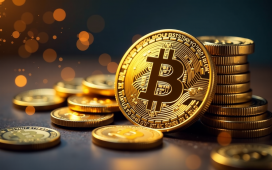To print this article, all you need is to be registered or login on Mondaq.com.
Key Point
- Just shy of three weeks after Judge Torres held that the
digital asset XRP is not itself a security,1 Judge
Rakoff held that the SEC had adequately pled that certain digital
assets, such as the UST and LUNA coins, are securities, reflecting
divergent approaches that courts are taking towards regulation of
digital assets.2
The Terraform Labs Litigation
The U.S. Securities and Exchange Commission (SEC) brought an
action against Terraform Labs and its founder in the U.S. District
Court for the Southern District of New York alleging a
multibillion-dollar fraud involving the development, marketing and
sale of digital assets. The SEC also alleged that the defendants
violated laws prohibiting the unregistered sale of securities.
On July 31, 2023, Judge Rakoff denied the defendants’ motion to
dismiss. In doing so, Judge Rakoff acknowledged that tokens,
particularly stablecoins designed exclusively to maintain a
one-to-one peg with another asset, might not qualify as securities.
However, Judge Rakoff held that the SEC had adequately pled that
the defendants promoted the digital assets as profitable
investments, and as such, the sale and offering of the assets
qualified as securities requiring registration. In doing so, Judge
Rakoff overtly rejected Judge Torres’s analysis of the
Howey test in SEC v. Ripple Labs. There,
ruling on cross-motions for summary judgment, Judge Torres drew a
distinction between institutional versus programmatic sales of
digital assets—finding that sales to institutional investors
constituted a security, while programmatic sales to retail
investors did not. Judge Rakoff took a divergent approach, finding
that “Howey makes no such distinction between
purchasers” and explaining that, if the SEC’s allegations
are true, “the defendants’ [sic] embarked on a public
campaign to encourage both retail and institutional
investors to buy their crypto-assets by touting the profitability
of the crypto-assets and the managerial and technical skills that
would allow the defendants to maximize returns on the
investors’ coins.”
Notably, the two decisions were made at distinct procedural
postures. Judge Rakoff afforded deference to the SEC’s
complaint based on ruling on a motion to dismiss, whereas Judge
Torres’s findings were made on summary judgment based on a
well-developed factual record. Whether the SEC can prove its
allegations remains to be seen.
Takeaways
- The competing opinions in the Southern District of New York
likely strengthen the prospect of the SEC’s appeal of Judge
Torres’s decision in SEC v. Ripple Labs. Moreover, the
SEC will likely rely on the Terraform Labs opinion in
other ongoing litigation, such as its case against Coinbase, where
the SEC is poised to file an opposition to Coinbase’s motion to
dismiss. - The question of how to classify digital assets is far from
resolved. It will be important to continue to monitor both cases
for further guidance on the application of the Howey test
by courts in the Southern District of New York.
Footnotes
1. Order, SEC v. Ripple Labs, Inc., No. 20-10832
(S.D.N.Y. July 13, 2023), ECF 874; see also Akin’s
prior client alert covering the
decision.
2. Opinion and Order, SEC v. Terraform Labs Pte.
Ltd., No. 23-01346 (S.D.N.Y. July 31, 2023), ECF
51.
The content of this article is intended to provide a general
guide to the subject matter. Specialist advice should be sought
about your specific circumstances.
POPULAR ARTICLES ON: Technology from United States












